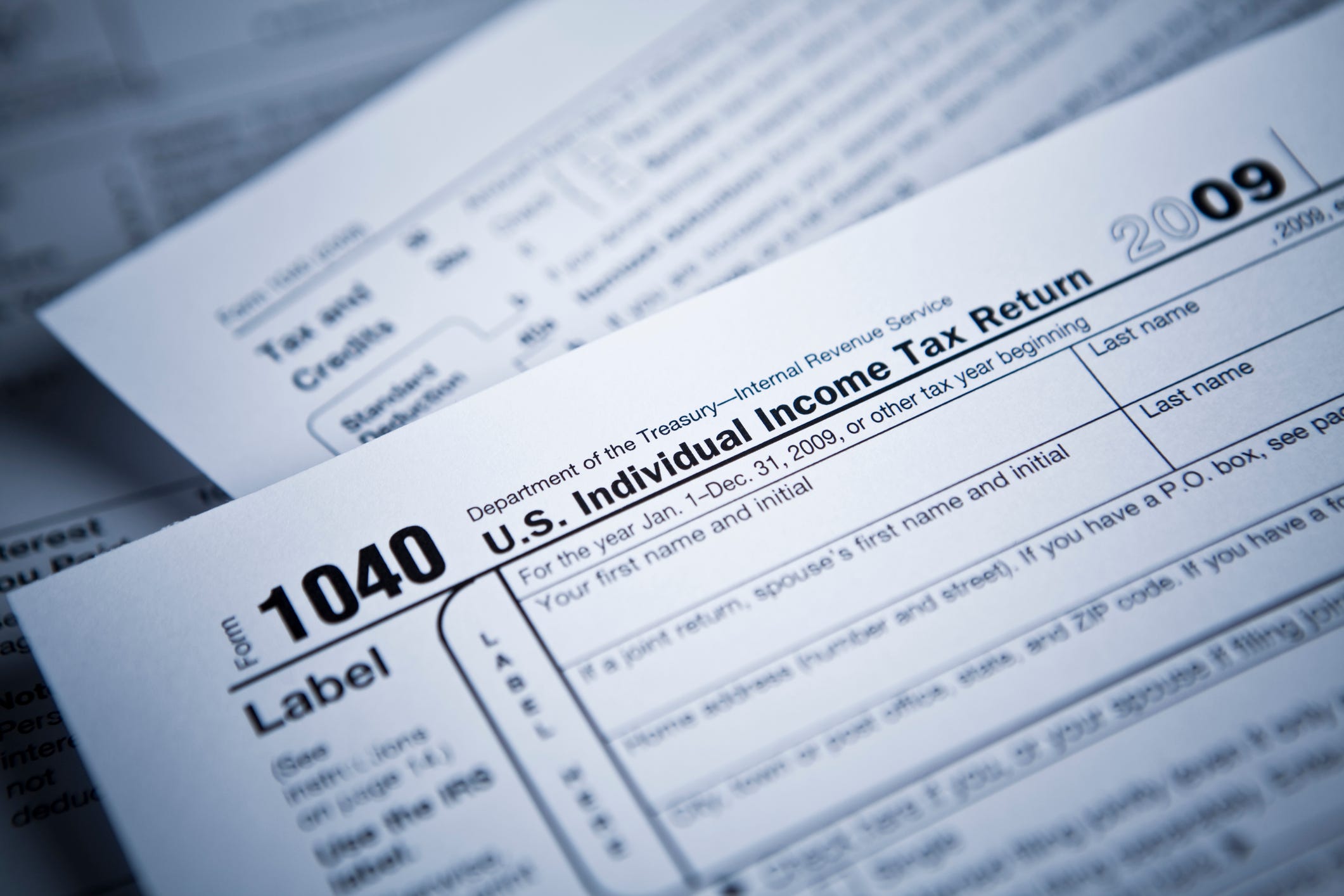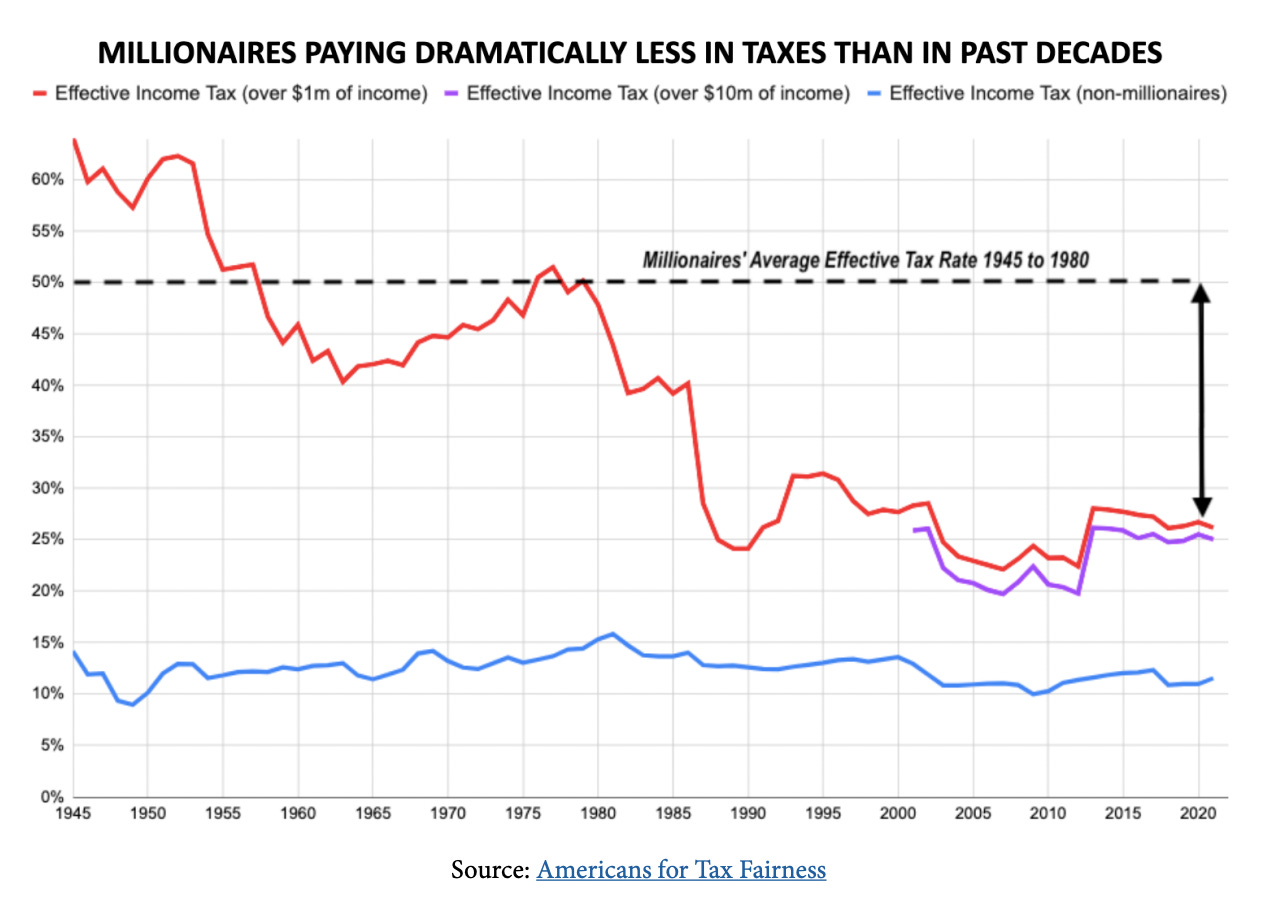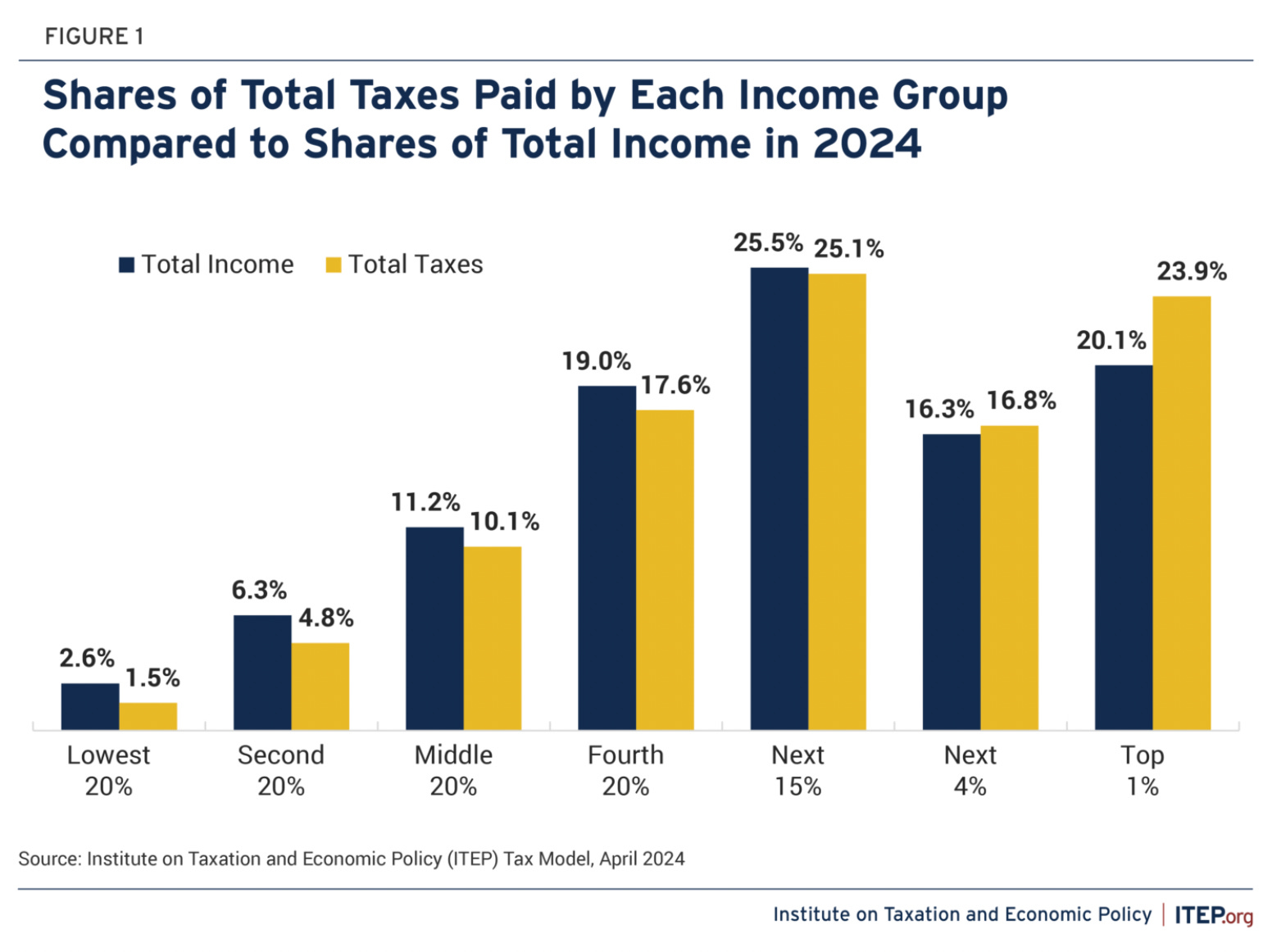Popular Information - Who pays on Tax Day
Too often, the media treats the news as a game. It's about who is up and who is down — who is winning and who is losing. Popular Information takes a different approach. We believe journalism should focus on people. We believe that, at its best, journalism can have a positive impact on people's lives by holding the powerful accountable. That is the focus of today's edition. And it will continue to be the focus of Popular Information in the months and years to come. Our reporting has helped secure guaranteed sick leave for 170,000 restaurant workers, justice for a 22-year-old Indigenous woman allegedly run over by a white nationalist, and accountability for Koch Industries, which was forced to wind down its ongoing operations in Russia. You can support this work — and help us do more of it — by upgrading to a paid subscription. Yesterday was the last day for Americans to file their 2023 taxes on time. What is the biggest difference between Tax Day this year and Tax Day in 1980? Millionaires pay a lot less. Between 1945 and 1980, American households that made $1 million or more paid an average of 50.1% of their income in federal taxes, according to a new report from Americans for Tax Fairness. This period following World War II was characterized by "substantial economic growth and broadly shared prosperity" with rapid income growth "at roughly the same rate up and down the income ladder." Higher taxes for the wealthy funded "public investments that helped build a thriving economy for all: constructing the interstate highway system, improving public education, facilitating mass home ownership, expanding healthcare coverage." According to the most recent IRS data, American households with more than $1 million in income now pay an effective tax rate of just 26%. Yes, because of inflation, $1 million has less purchasing power today than it did 44 years ago. But $1 million still exceeds the income of 99.5% of American households. While millionaires have seen their tax rates halved, the tax rate for non-millionaires has been fairly consistent. Between 1945 and 1980, the average effective tax rate for non-millionaires was 12.6%. Today, it is 11.5%. In 2001, the IRS started tracking the effective tax rate of American households that make $10 million or more. They have a slightly lower effective tax rate than other millionaires. The gap in effective tax rates between those American households that make $10 million or more and those that make seven figures likely reflects how the tax code imposes higher taxes on work than wealth. Seven-figure earners typically earn much of their revenue through income from high-paying jobs, and the top marginal income tax rate has ranged between 35% and 39.6% over the last two decades. Those who earn $10 million or more commonly derive some or all of their income through investments, which have been taxed between a 15% and 23.8% rate over the same time period. That's why the top 0.0001% — the 1500 richest households in America that make $118 million or more — pay an effective rate of just 23%. That's less than the regular millionaires. The reality is that today, the American tax code barely qualifies as progressive. The Institute on Taxation and Economic Policy (ITEP) produced a study this month that looked at taxes paid at all levels (federal, state, and local) by income. ITEP found that the wealthiest 1% of American households collected 20.1% of total income and paid 23.9% of total taxes. The poorest 20% of American households collected just 2.6% of total income but paid 1.5% of total taxes. While the federal tax code, despite the dramatic reduction in rates for millionaires over the last several decades, remains progressive, "state and local taxes in most states are regressive, meaning they take a larger share of income from the poor than from the rich." Many states and localities impose sales taxes and "low-income families have little choice but to spend all their income to cover basic needs." High-income families "can save and invest most of their income, avoiding sales taxes." Using impoverished children as political pawnsIn 2021, as the pandemic still raged, Congress instituted a historic expansion of the Child Tax Credit (CTC). The CTC was increased from $2,000 per child to $3,600 for each child aged five or younger and $3,000 for each child aged 6 through 17. (The credit phased out for couples making $150,000 or more and individuals making $75,000 or more.) The credit was also made fully refundable, which means even families with little or no income could benefit. It was paid out monthly so that families did not have to wait until Tax Day to see the benefit. The policy was a smashing success. Child poverty plunged to 5.2%, a record low. But due to the opposition from corporate lobbyists, Republicans in Congress, and Senator Joe Manchin (D-WV), the CTC expansion expired at the end of 2022. Child poverty quickly increased, spiking to 12.4% in 2022 — that meant 5.28 million additional children living in poverty. Since then, there has been bipartisan interest in reviving at least some of the CTC expansion. Senate Finance Committee Chair Ron Wyden (D-OR) and House Ways and Means Committee Chair Jason Smith (R-MO) struck a deal to make the credit refundable for more families. It is a modest and technical change, but it would help about 16 million low-income families with children, with an average benefit of about $630. To attract Republican support, the deal included some business tax cuts, passed in 2017, that had expired or were close to expiring. The Wyden-Smith package cleared the House at the end of January by a vote of 357-70. But for months, the Senate has done nothing. Senator Mike Crapo (R-ID), the senior Republican on the Senate Finance Committee, claims to be "negotiating" the package, which was already the product of a bipartisan negotiation. Crapo reportedly wants more generous corporate tax cuts and fewer benefits for impoverished children. But efforts to tweak the proposal have not changed Crapo's opposition or the other Senate Republicans following his lead. Wyden's impression is that the proposal is not "something that Senate Republicans wanted to do." Why? Senator Chuck Grassley (R-IA) said he opposed the package because "passing a tax bill that makes the president look good… [and] means he could be re-elected." In a Wall Street Journal op-ed, Senator Thom Tillis (R-NC) said that expanding the CTC now means "all Republican leverage will be lost" on tax issues regardless of who wins the election. Defeating the Wyden-Smith package would "extend the bulk, if not all, of the Trump tax cuts" in the future. At the end of 2025, Trump's tax cuts for individuals would expire, raising the top income tax rate from 37% to 39.6%. Crapo and other Senate Republicans, however, have not simply cut off negotiations because harming impoverished children for a chance to help corporations and the wealthy is not a good look politically. But the route they are taking has the same effect. They are killing a modest expansion of the CTC by running out the clock. The lobbyists who want you to keep paying to file your taxesEarlier this year, the IRS launched its first-ever free tax filing program, Direct File, in 12 different states. The program, which is funded by the Inflation Reduction Act, is still in its pilot stage. At least 100,000 taxpayers used the program to file their federal income taxes this tax season, and so far, the results are fairly encouraging. It’s estimated that in five years, “Direct File would save the average user $160 in filing fees and hours of their time each year, which saves Americans a total of $11 billion annually between filing fees and time costs,” according to a study by the Economic Security Project. Direct File also makes it easier to claim credits like the CTC. According to the Economic Security Project, the program would “deliver up to $12 billion each year in additional tax credits to low-income families currently missing out.” The group also calculated that the program would generate at least $300 million in savings for the IRS. Despite its immense potential and early success, tax preparation companies “are continuing to blast Direct File as unpopular and unnecessary.” A lawyer for the American Coalition for Taxpayer Rights – a trade group that represents tax prep giants like TurboTax and H&R Block – told the Washington Post that there is “not a real demand” for the program. But this is misleading. More than 70% of taxpayers said they would be interested in filing their taxes through a free, IRS-provided online tool, according to the IRS’ 2022 Taxpayer Experience Survey. Polls across different states also show that a “massive majority” of Americans, including both Democrats and Republicans, support a free IRS tax return system. For years, tax prep companies have spent millions of dollars blocking efforts to make tax filing free and easy. In 2019, ProPublica reported that Intuit, the maker of TurboTax, spent 20 years blocking an IRS-provided e-file service – all while tricking low-income taxpayers into paying for services the company was federally obligated to provide to them for free. Last year, the company spent a record $3.8 million lobbying the federal government. “[M]any of Intuit’s disclosures say it lobbied on the implementation of the Inflation Reduction Act,” Sludge and More Perfect Union reported. So far, there has been some accountability. In 2022, Intuit agreed to pay a $141 million settlement to roughly 4.4 million Americans, most of whom were low-income. Most recently, in January, federal regulators ordered the company to “stop marketing its services as free, unless they are free to everyone or exceptions are clearly disclosed.” Still, problems persist. This month, Senator Elizabeth Warren (D-MA) wrote a letter to the Federal Trade Commission, urging the agency to continue investigating the tax prep software. “Despite lawsuits and settlements stemming from Intuit’s deceptive ‘free’ advertising practices, the company continues to relentlessly upsell TurboTax users,” Warren wrote. “The TurboTax website attempts to divert taxpayers away from free filing options early in the process – and continues to do so throughout their federal and state tax filings.” |
Older messages
Senate spotlight: A Trump Republican's China problem
Monday, April 15, 2024
November's election will not only determine which party controls the White House but also the United States Senate. Currently, the Democratic caucus holds a narrow 51-49 advantage. Control of the
People v. Trump
Saturday, April 13, 2024
Next Monday, April 15, Donald Trump will report to the Manhattan Criminal Courthouse to stand trial. According to the official summary released this week by Judge Juan Merchan, the case involves
Arizona Republicans condemn their own abortion policy
Saturday, April 13, 2024
On Tuesday, the Arizona Supreme Court issued a bombshell decision banning virtually all abortions in the state. The majority found that since the Supreme Court overturned Roe v. Wade, a near-total ban
What Trump really said about abortion
Tuesday, April 9, 2024
During the 2024 presidential campaign, former President Donald Trump boasted that he would "come together with all groups" on abortion and "negotiate something" that would "
Cruz's corrupt bargain
Monday, April 8, 2024
After the Supreme Court's 2010 decision in Citizens United, there are few restrictions on spending money in federal elections. But Senator Ted Cruz (R-TX) may have violated one of the last legal
You Might Also Like
Surprise! People don't want AI deciding who gets a kidney transplant and who dies or endures years of misery [Mon Mar 10 2025]
Monday, March 10, 2025
Hi The Register Subscriber | Log in The Register Daily Headlines 10 March 2025 AI Surprise! People don't want AI deciding who gets a kidney transplant and who dies or endures years of misery
How to Keep Providing Gender-Affirming Care Despite Anti-Trans Attacks
Sunday, March 9, 2025
Using lessons learned defending abortion, some providers are digging in to serve their trans patients despite legal attacks. Most Read Columbia Bent Over Backward to Appease Right-Wing, Pro-Israel
Guest Newsletter: Five Books
Sunday, March 9, 2025
Five Books features in-depth author interviews recommending five books on a theme Guest Newsletter: Five Books By Sylvia Bishop • 9 Mar 2025 View in browser View in browser Five Books features in-depth
GeekWire's Most-Read Stories of the Week
Sunday, March 9, 2025
Catch up on the top tech stories from this past week. Here are the headlines that people have been reading on GeekWire. ADVERTISEMENT GeekWire SPONSOR MESSAGE: Revisit defining moments, explore new
10 Things That Delighted Us Last Week: From Seafoam-Green Tights to June Squibb’s Laundry Basket
Sunday, March 9, 2025
Plus: Half off CosRx's Snail Mucin Essence (today only!) The Strategist Logo Every product is independently selected by editors. If you buy something through our links, New York may earn an
🥣 Cereal Of The Damned 😈
Sunday, March 9, 2025
Wall Street corrupts an affordable housing program, hopeful parents lose embryos, dangers lurk in your pantry, and more from The Lever this week. 🥣 Cereal Of The Damned 😈 By The Lever • 9 Mar 2025 View
The Sunday — March 9
Sunday, March 9, 2025
This is the Tangle Sunday Edition, a brief roundup of our independent politics coverage plus some extra features for your Sunday morning reading. What the right is doodling. Steve Kelley | Creators
☕ Chance of clouds
Sunday, March 9, 2025
What is the future of weather forecasting? March 09, 2025 View Online | Sign Up | Shop Morning Brew Presented By Fatty15 Takashi Aoyama/Getty Images BROWSING Classifieds banner image The wackiest
Federal Leakers, Egg Investigations, and the Toughest Tongue Twister
Sunday, March 9, 2025
Homeland Security Secretary Kristi Noem said Friday that DHS has identified two “criminal leakers” within its ranks and will refer them to the Department of Justice for felony prosecutions. ͏ ͏ ͏
Strategic Bitcoin Reserve And Digital Asset Stockpile | White House Crypto Summit
Saturday, March 8, 2025
Trump's new executive order mandates a comprehensive accounting of federal digital asset holdings. Forbes START INVESTING • Newsletters • MyForbes Presented by Nina Bambysheva Staff Writer, Forbes



